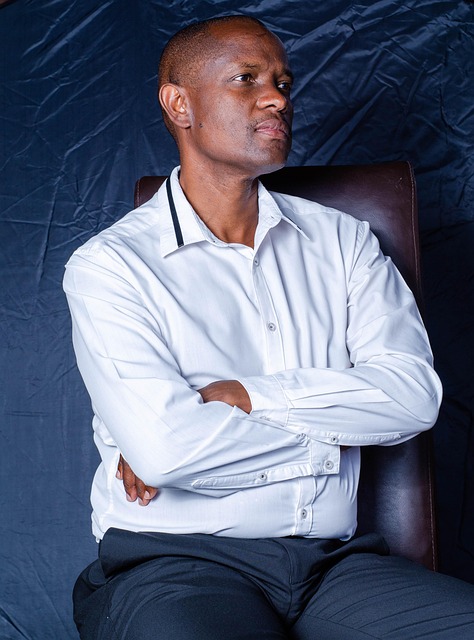Protecting Your Family: Child Custody Lawyer Albany, NY Guidance

Navigating child custody in Albany, NY requires legal expertise to understand state laws and guidelines focusing on children's best interests. Ch…….
In the intricate web of family law, child custody cases stand as some of the most delicate and emotionally charged matters. In Albany, New York, individuals facing these challenges can turn to specialized legal advocates—Child Custody Lawyers. This article delves into the vital role played by Child Custody Lawyers in Albany, exploring their expertise, impact, and the multifaceted considerations that shape their practice. By understanding this dynamic field, we gain insights into the legal landscape that supports families through one of life’s most significant transitions.
A Child Custody Lawyer in Albany, NY, is a legal professional who specializes in representing clients in matters related to the custody and welfare of children. These lawyers navigate complex family law, focusing on cases involving divorce, separation, domestic partnerships, or single-parent situations where child custody arrangements are contested. Their core responsibilities include:
Child custody laws have evolved significantly over the years, reflecting societal changes and a growing emphasis on child welfare. In New York State, these laws are shaped by the Family Court Act, which outlines procedures for custody, visitation, and support decisions. The role of Child Custody Lawyers in Albany has grown alongside these legal developments, becoming increasingly crucial as family structures diversify and custody battles become more complex.
Historically, custody decisions were often skewed towards maternal preferences, reflecting societal norms. However, modern family law aims to make determinations based on the best interests of the child, considering factors like parental fitness, stability, and the child’s needs. Child Custody Lawyers in Albany play a pivotal role in ensuring these principles are applied fairly and consistently.
While child custody laws vary widely across jurisdictions, the influence of international trends is evident. The concept of shared parenting and joint custody, once relatively uncommon, has gained global traction, reflecting a growing recognition of both parents’ roles in a child’s life. Albany’s Child Custody Lawyers operate within this evolving global context, staying abreast of international best practices to enhance their advocacy.
Across the United States, there is a noticeable shift towards more equitable custody arrangements, with an increasing number of states adopting ‘equal parenting time’ or ‘shared custody’ as the norm. This trend reflects a societal move away from rigid custodial decisions, favoring more collaborative and child-centric approaches. Similarly, in New York State, there has been a growing emphasis on alternative dispute resolution methods, such as mediation, which Child Custody Lawyers often employ to help clients reach mutually agreeable solutions.
The demand for Child Custody Lawyer services is influenced by several economic factors. In Albany, a city with a diverse population and a significant number of families, the legal market is competitive, with numerous firms specializing in family law. This competition drives professionals to stay updated on legal reforms and foster specialized expertise, ensuring clients receive high-quality representation.
For parents involved in custody battles, legal fees can be a significant financial burden. As such, many seek cost-effective solutions, including alternative fee structures offered by some Child Custody Lawyers. These may include flat rates for specific services or contingency arrangements, making legal aid more accessible.
Child Custody Lawyers in Albany embrace technological advancements to streamline their practice. Case management software allows them to organize client files, track court deadlines, and communicate efficiently with clients. These tools enhance productivity, enabling lawyers to manage complex cases with greater precision and timely responses.
The internet has revolutionized legal research, providing lawyers with instant access to case law, statutes, and legal articles. This accessibility empowers Albany’s Child Custody Lawyers to stay current on legal developments, ensuring they offer clients the most relevant and up-to-date advice.
Video conferencing and secure email systems have become integral to modern legal practice. These tools facilitate remote consultations, allowing lawyers to communicate with clients located anywhere in New York or beyond. This flexibility benefits both lawyers and clients, particularly those with busy schedules or accessibility challenges.
New York State’s family law is governed by various policies and regulations, including provisions of the Family Court Act and supporting regulations. These laws cover a broad range of topics, from initial custody determinations to modification petitions and enforcement actions. Child Custody Lawyers in Albany must have a deep understanding of these legal frameworks to navigate complex cases effectively.
The New York State Legislature plays a crucial role in shaping family law policies. Recent amendments to the Family Court Act have focused on streamlining custody proceedings, promoting alternative dispute resolution, and emphasizing the best interests of the child. Child Custody Lawyers stay abreast of these legislative changes to provide clients with accurate guidance and effective representation.
One of the primary challenges faced by many families in Albany is accessing affordable legal services for child custody matters. While some lawyers offer pro bono services or reduced rates, the high demand often results in long waiting lists. To address this, local bar associations and legal aid organizations collaborate to provide resources and support to low-income families.
Child custody cases can be highly complex, involving intricate financial matters, domestic violence concerns, or international child abductions. These complexities require Child Custody Lawyers to possess a broad range of skills, from legal expertise to emotional intelligence, to navigate such delicate situations effectively.
Despite the professional nature of their work, Child Custody Lawyers sometimes face misunderstandings and stigma associated with family law. They strive to dispel these misconceptions by emphasizing their role as advocates for children’s rights and well-being, rather than simply representing parents’ interests.
Proposed Solutions:
A local family in Albany faced a complex situation when their child was abducted by a non-custodial parent who had recently moved overseas. The child’s mother, Ms. Johnson, turned to an experienced Child Custody Lawyer for help. The lawyer navigated international laws and collaborations with foreign legal authorities, eventually securing the safe return of the child. This case highlights the critical role lawyers play in handling transnational custody matters.
Mr. Green, a single father, sought assistance in establishing a fair shared parenting arrangement after his divorce. His Child Custody Lawyer crafted a comprehensive plan that considered the child’s needs and the parents’ work schedules. Through mediation and collaborative efforts, they reached an agreement that fostered a stable and loving environment for the child, demonstrating the lawyer’s ability to advocate for clients while promoting positive co-parenting relationships.
The future of Child Custody Law in Albany, NY, holds several promising growth areas:
Child Custody Lawyers in Albany should focus on:
Child Custody Lawyer Albany, NY, stands as a vital pillar in the broader landscape of family law, offering specialized expertise and compassion to families navigating complex custody matters. Through a combination of legal acumen, technological savvy, and a commitment to child welfare, these lawyers play a crucial role in shaping positive outcomes for children and their families.
As the field continues to evolve, Child Custody Lawyers will remain at the forefront, adapting to emerging trends and technologies while steadfastly advocating for the best interests of children. Their work ensures that family law remains a force for justice and stability in Albany and beyond.
Q: What is the first step when considering hiring a Child Custody Lawyer?
A: Identify your specific needs and concerns. Gather relevant documents, such as court papers or financial records. Then, research local lawyers specializing in child custody, read client reviews, and schedule initial consultations to discuss your case.
Q: How do I choose the right lawyer for my child custody case?
A: Consider factors like the lawyer’s experience, track record, communication style, and fees. Ensure they have a deep understanding of New York State’s family law and can provide personalized guidance tailored to your situation.
Q: Can mediation help resolve a child custody dispute without going to court?
A: Absolutely! Mediation is a cost-effective and less adversarial approach, where a neutral third party assists parents in reaching a mutually agreeable custody arrangement. Many lawyers encourage clients to explore mediation as a first step.
Q: What happens if we can’t agree on a child custody arrangement?
A: If you cannot reach an agreement, the lawyer will guide you through the court process. They will prepare and file the necessary legal documents, represent you in court, and advocate for your desired outcome, ensuring your rights and the best interests of your child are protected.

Navigating child custody in Albany, NY requires legal expertise to understand state laws and guidelines focusing on children's best interests. Ch…….

In Albany, NY, parental rights are governed by complex state laws requiring expert legal guidance from a Child Custody Lawyer to navigate complexities…….

In New York State, especially Albany, complex child custody matters require expert legal guidance from a qualified Child Custody Lawyer. These attorne…….

For complex child custody matters in Albany, NY, residents trust O'Connell and Aronowitz's expert Child Custody Lawyer. Our specialized team…….

In New York State, including Albany, child custody laws prioritize the best interests of children in divorce or separation. Trusted Child Custody Lawy…….

In Albany, New York, Child Custody Lawyers specialize in navigating complex laws and familial dynamics to advocate for children's best interests……..

In Albany, NY, Child Custody Lawyer experts at O'Connell and Aronowitz guide parents through complex legal processes, offering customized custody…….

In Albany, NY, Child Custody Lawyers interpret and navigate complex state laws to protect parental rights during divorce, separation, and adoption. Th…….

Child Custody Mediation in Albany, NY, offers a collaborative approach with help from experienced lawyers from O'Connell and Aronowitz. This proc…….

When facing child custody disputes in Albany, NY, expert legal counsel from O'Connell and Aronowitz's specialized Child Custody Lawyer is cr…….